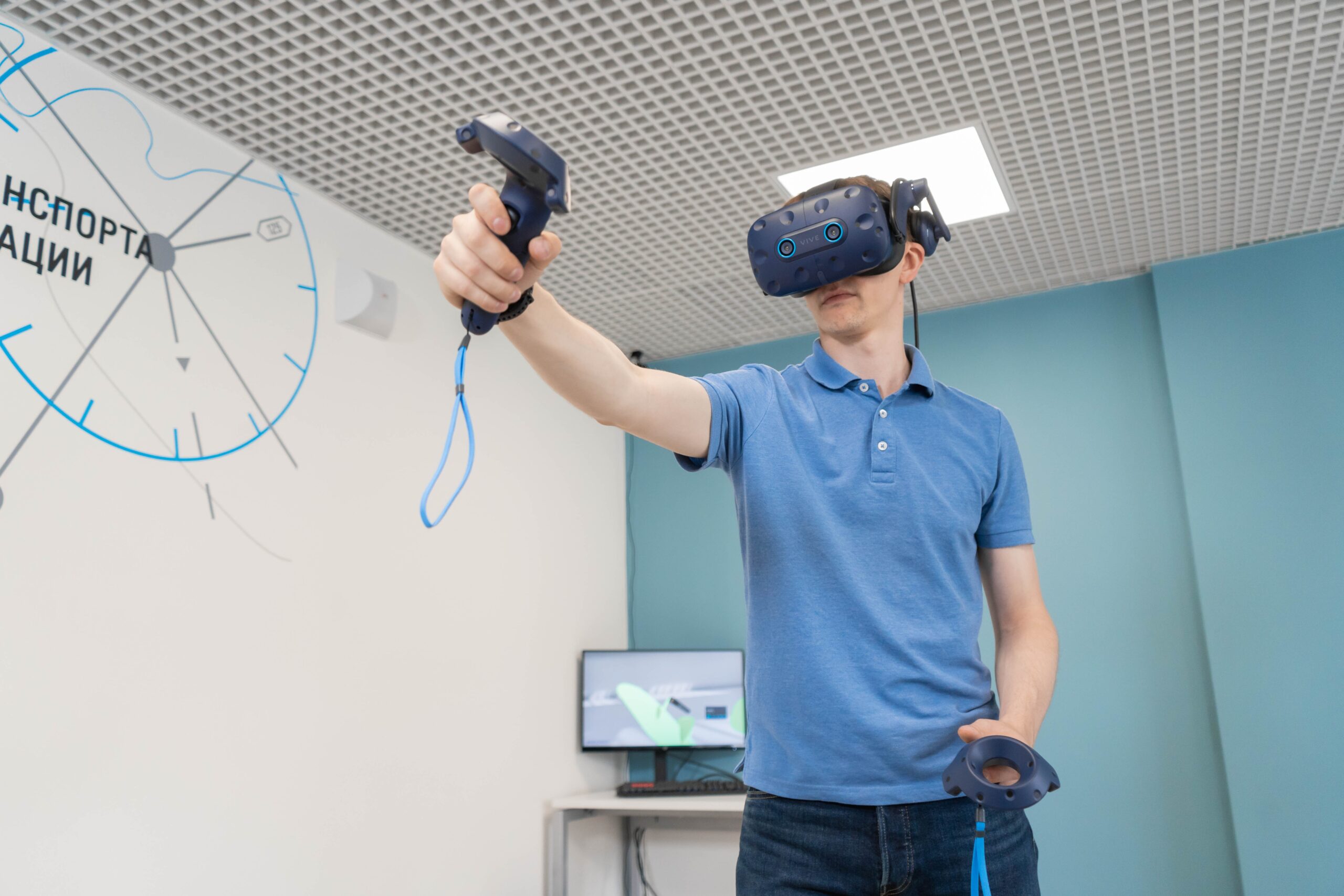Future-Proof Your Skills: Learn Data Science with ALX Global
- Tony Camme
- August 8, 2023

From Midjourney to Apple’s Vision Pro, new technological advancements in AI and VR continue to push the boundaries of what is possible with tech. With how quickly things change, it often feels like the future is happening now.
This can be daunting if you’re considering a career in tech. After all, what you learn one day seems to be outdated and obsolete the next – how is it possible to keep up with the pace of change? The first step is to learn some foundational skills to strengthen your grasp of the tech industry, preparing your skill set for what’s to come in the future.
Enter the idea of “future-proofing.”
When you future-proof a skill set, you ensure that it does not become obsolete by gearing what you learn toward future advancements in the industry. In order to stay competitive in an ever-evolving landscape like tech, it’s important to learn for the future, not just the present.
Data science is a great place to start simply because it is the foundation of so many important industries. When you learn data science from a future-first perspective, it becomes especially useful. At ALX Global, we know that the future is built by learners. The best way to stay ahead of the curve is to ride right inside the pocket. Let’s explore the value of learning data science to future-proof your skills.
Tech is Always Evolving
Back when computers were first invented, they took up entire rooms. Years later, the personal computer was developed, which brought these powerful devices to our homes. As technology progressed, the internet connected us on the world wide web, giving rise to websites, social media, and e-commerce.
And then came smartphones.
I remember being in primary school and complaining about learning math. Teachers would always say something like, “You won’t always have a calculator in your pocket, will you?”
In a matter of years, we went from having to memorize facts and math equations to having all the knowledge in the world available at our fingertips. Nowadays, we have a calculator, encyclopedia, task manager, calendar, phone, flashlight, camera, GPS – you name it! – in a device small enough to fit in our pockets.
In recent times, automation and smart technologies have become increasingly prevalent, transforming our homes, financial systems, and workplaces. From cryptocurrency and blockchain in the early 2010’s to ChatGPT and AI in the 2020’s, nothing is untouched by the rapid pace of technical evolution.
Now more than ever, the rate of change in tech seems to increase daily. Amidst all of this innovation, the importance of future-proofing our skills cannot be overstated. As tech evolves, industries need professionals who are equipped with the skills to evolve with it. Whether it’s mastering data science, AI, cybersecurity, or other cutting-edge fields, staying ahead of the curve is vital for a successful career in tech.
The importance of coding
Underneath all of this tech transformation is code. Coding is an essential technical skill, as it is the way data scientists and software engineers give instructions to computers to do specific tasks. In today’s future-first tech climate, knowing how to code is an essential skill that teaches professionals how to solve complex problems in the digital age.
Currently, learning to code is like learning a new language. You have to memorize the right syntax and commands in order to get the computer to do what you want it to do. With the rapid development of software development tools, however, traditional coding may become a thing of the past.
Instead of writing out every line of code, new programs include intuitive drag-and-drop interfaces that enable anyone – regardless of their technical background – to build their own website, app, or software from scratch. This is often referred to as the “no-code” future.
By democratizing tech in this way, creative individuals can turn their innovative ideas into reality without extensive coding skills.
While the rise of no-code tools and platforms is exciting, it does not mean that knowing to code will be an obsolete skill. Knowing how code works even when you don’t necessarily need to use it can help you unlock the true creative potential of these no-code tools and platforms.
In data science, for example, many tools help you do statistical analysis without code, but understanding how they work can really help you get the most out of your data.

Artificial Intelligence & machine learning
Two distinct evolutions in tech have really taken us into the future: artificial intelligence (AI) and machine learning (ML).
At its core, AI refers to the development of intelligent systems that can perform tasks on their own that would otherwise require human input. Developing this technology allows computers to perceive, reason, learn, and make decisions.
These intelligent technologies have the potential to revolutionize industries from healthcare and finance to transportation and entertainment. With AI, computers can make personalized medical diagnoses, power autonomous vehicles, or run virtual assistants that can anticipate our needs.
Within the realm of AI, machine learning (ML) is a key driver that helps AI progress forward. ML involves developing algorithms and models that allow computers to learn from data and improve their performance over time without explicit programming.
This empowers machines to identify patterns, make predictions, and adapt to changing circumstances. From recommendation systems and fraud detection to image recognition and natural language processing, ML transforms the way we interact with technology.
In the workplace, both AI and ML help to automate repetitive tasks, enhance productivity, and enable efficient decision-making, freeing up workers’ time to focus on more involved parts of their job.
In data science in particular, many of the statistical analyses and recommendations data scientists make can be simplified using these technologies. They can more easily process and analyze vast amounts of data, uncover hidden insights, and make informed decisions at an unprecedented scale and speed.
Cryptocurrencies, blockchain, and web3
Crypto, blockchain, and web3 are driving the evolution of technology, reshaping the way we think about money, transactions, and the internet itself. They are paving the way for the future of technology’s next iteration.
Cryptocurrencies like Bitcoin and Ethereum operate on decentralized networks and use cryptography to make secure transactions. A distinct feature of cryptocurrencies is their ability to bypass traditional financial institutions and instead offer peer-to-peer alternatives. This gives finance the ability to transcend borders and empowers individuals to have more control over their finances.
The technology behind crypto’s success is called blockchain. Blockchain is a decentralized ledger of financial transactions. The most distinct feature of blockchain is its ability to record and verify transactions in a transparent and immutable manner. Importantly, blockchain eliminates the need for intermediaries – like banks or other institutions – which has implications in supply chain management, healthcare, and even in voting systems. It overall is a more democratized, transparent way users can exchange value.
Web3 is another emerging technology that is transforming the way we use the internet. By leveraging blockchain and cryptocurrencies, web3 envisions a decentralized internet where users have better control over their data and digital identities.
These three technologies represent a shift away from traditional computing systems towards more inclusive, accessible, and user-centric technologies.

What Does it Mean to “Future-Proof” Your Skills?
In an industry that is constantly advancing and evolving like tech, it is important to train the workforce with skills that won’t become obsolete when things inevitably change. This is what we mean when we talk about “future-proofing” your skills.
When looking to future-proof your skills, it’s important to take all of the advancements we mentioned above into consideration when learning something new. This helps you remain relevant and competitive when looking for a job or while doing work in your current job.
In order to stay future-proof, you must stay up-to-date with the latest trends in tech in order to know the types of skills and abilities employers might expect of you in your area of expertise. Embracing life-long learning, exploring emerging technologies, and learning to adapt to shifts in the industry are all essential skills to have when working in tech.
Learn Data Science Skills with ALX Global
One way to gain future-proof tech skills is to become a data scientist. In a world driven by data, the ability to extract valuable insights and help companies make data-driven decisions is in high demand.
By learning data science, you will gain the skills necessary to analyze vast amounts of information, uncover patterns and trends, and then create strategies based on those insights. These days, data scientists are needed in industries as diverse as finance, healthcare, marketing, and cybersecurity.
Courses like those provided by ALX Global are future-focused with curricula that are constantly being updated according to demands in the industry. Learning data science will prepare you for a data-driven role in this current data-driven world. ALX Global’s Data Science course is the perfect place to start.

The Future is Now
Our smartphones grant us instant access to information and connect us with people across the globe. Social media platforms have revolutionized the way we communicate, share ideas, and engage with communities. E-commerce has reshaped retail, allowing us to shop for virtually anything with the click of a button from the comfort of our homes.
Healthcare, too, is witnessing the integration of telemedicine alongside data-driven diagnostics, meaning a swift and accurate medical diagnosis without having to go to the doctor’s office. Wearables – electronic devices that are worn on the body and can monitor and track various health parameters – help us keep track of our health at all times.
In energy, renewables are rapidly advancing, promising a greener, more sustainable future. Smart cities use interconnected systems to enhance efficiency. These systems are essentially networks of various devices, sensors, and technologies that are all connected and are able to communicate with each other. This includes traffic monitoring, environmental monitoring, energy usage, and public safety.
These advancements are thanks in large part to emerging technologies that permeate various industries, including AI, VR, and smart technologies, where massive amounts of data are either being created or utilized to help make our lives easier. Without data scientists, virtually none of this would be possible. They are currently transforming the way we live, work, and interact with each other.
Data Science and the Future of Tech
Data science is at the forefront of innovation across many industries. In healthcare, for example, data scientists use advanced analytics and ML to analyze large sets of patient data. This helps them predict disease outcomes, identify health trends, and improve treatment plans.
In finance, data science plays a crucial role in detecting fraud, protecting financial systems from bad actors, and enables predictive modeling for market trends. In transportation and logistics, data scientists help optimize operations, reduce fuel consumption, and enhance delivery efficiency.
By acquiring skills in data science, you will understand how to use data for statistical modeling and ML, which positions you at the forefront of tech advancements. With data science, you can unlock the power to extract meaningful insights, make informed decisions, and shape a better future.
Data science and AI / ML
Using AI, data scientists can perform predictive analysis or help build algorithms that make personalized recommendations, like those used in Spotify or Netflix. This powerful combination helps drive innovation and helps us use data in ways that truly transform technology for the better.
Using ML, data scientists can teach machines to autonomously process information, recognize trends and patterns, and make predictions.
Both data science and ML use data to advance how we create and innovate products, services, and infrastructural systems. Data science helps us understand and extract insights from data, while ML enables machines to learn and improve their performance using data.
Together, these two fields empower us to make informed decisions and drive innovation in a data-driven world. Proficiency in both data science and ML is essential for staying at the forefront of technological evolution and harnessing its transformative potential.
Data science and web3
Web3 is all about giving users control of their data by utilizing closed, decentralized blockchain-powered data storage systems. Data scientists gather information from decentralized networks, enabling them to make data-driven decisions in a secure, user-centric manner.
Web applications known as dApps are built on these blockchain platforms. Users have the ability to grant these dApps access to their data, allowing them to make more personalized experiences based on the users’ interests.
With web3, users have the power to shape their digital experiences by choosing when and where to share their data. They can ensure that decisions around their data are only made by them. As we embrace this future, the integration of data science adn web3 will redefine the way we engage with technology, paving the way for a more inclusive and equitable digital ecosystem.
Job Opportunities In Data Science
Data science careers require a blend of analytical thinking, technical expertise, and creativity. Whether you’re working with structured or unstructured data, machine learning algorithms, or statistical models, your role is vital in driving innovation that shapes the future of tech.
To succeed as a data scientist, it is essential to have a solid foundation in mathematics, statistics, and programming. In the job market, skills like Python, R, SQL, and machine learning frameworks are highly sought after. Soft skills like an inquisitive mindset, coupled with the ability to communicate complex ideas to those who might not have technical knowledge are also valuable.
The future of tech holds tremendous potential for data scientists. Some of today’s most in-demand data science jobs include:
- Data scientist
- Machine learning engineer
- Machine learning scientist
- Application architect
- Data architect
- Data analyst
Learn Data Science with a “Future-First” Program
The ALX Data Science course is delivered in partnership with ExploreAI, a renowned tech educator at the forefront of AI and data science. With their industry insights and expertise, they provide an unparalleled learning experience that prepares learners for the future.
When you enroll in an online course with ALX Global, you benefit from hands-on learning that combines theoretical foundations with real-world applications. The program covers a wide range of topics including data analysis, machine learning, statistical modeling, and data visualization. Through practical projects and case studies, you’ll also learn programming languages like Python, R, and SQL.
By joining the ALX Global community, you also gain access to a network of industry experts, mentors, and fellow learners. This community provides opportunities for collaboration, knowledge sharing, and professional growth. These connections could open doors to exciting career opportunities and help you stay up-to-date with the latest trends in data science.
Summary
In today’s dynamic tech landscape, the key to success lies in your ability to evolve alongside technology. The integration of data science with other emerging technologies like AI, ML, and web3 opens up new possibilities and drives innovation in various industries. Proficiency in data science and related fields is essential for navigating the evolving tech landscape.
Future-proofing your career involves acquiring skills that are highly sought after by employers both now and in the foreseeable future. ALX Global offers a future-first data science program in partnership with ExploreAI, which will provide you with the knowledge and tools needed to succeed in tech.
FAQs
1. What is a data scientist’s average salary?
Data scientist salaries can vary significantly depending on factors such as location, level of experience, industry, and company size. Salaries for data scientists are generally higher in regions with a high demand for data professionals, such as the United States, Western Europe, and Australia.
AI, Data, and Analytics publication, Analytics Insights reports that the U.S. is one of the highest-paid countries for data scientists. Australia ranks second in the list of high-paying countries for data scientists, followed by Israel, Canada, and Germany.
2. Can I do a data science course online?
Yes, you can pursue a data science course online. ALX offers various professional development courses including Data Science.
3. Can I do data science if I’m bad at math?
Data science does involve a significant amount of mathematics, and having a solid understanding of mathematical concepts can be beneficial for success in the field. However, being “bad” at math doesn’t necessarily mean you cannot pursue a career in data science. It’s important to note that the level of mathematical proficiency required can vary depending on the specific area of data science and the tasks involved.